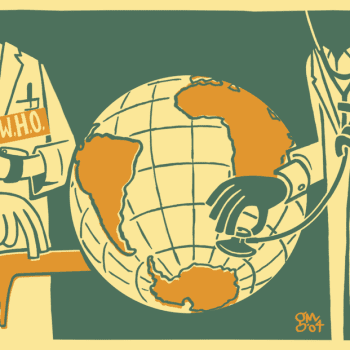Ezra Klein points out that in the 19th century the different newspapers were tied to and funded by political parties. The news was slanted accordingly. But then newspaper revenue switched to advertising. This led to a greater degree of objectivity–as well as blandness–since newspapers didn’t want to alienate any particular audience, the advertisers wanting to sell to everybody.
After that interesting discussion, Klein segues into a larger discussion based on this observation:
One of the most mind-bending facts of our information culture is that almost every major medium of information supports itself by advertising.
Radio? Advertisers. Magazines? Advertisers. Television? Advertisers. Google? Advertisers. Facebook? Advertisers. Twitter? Advertisers. Perhaps the only major exceptions to this rule are books, which are supported by sales, and Wikipedia, which is supported largely through donations.
















